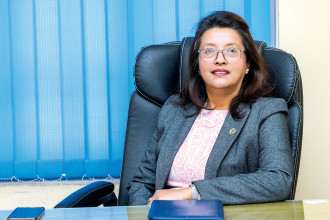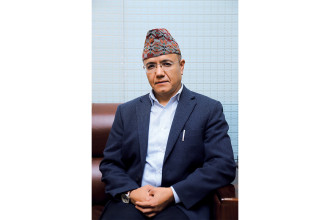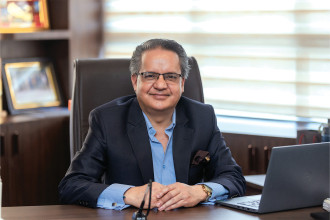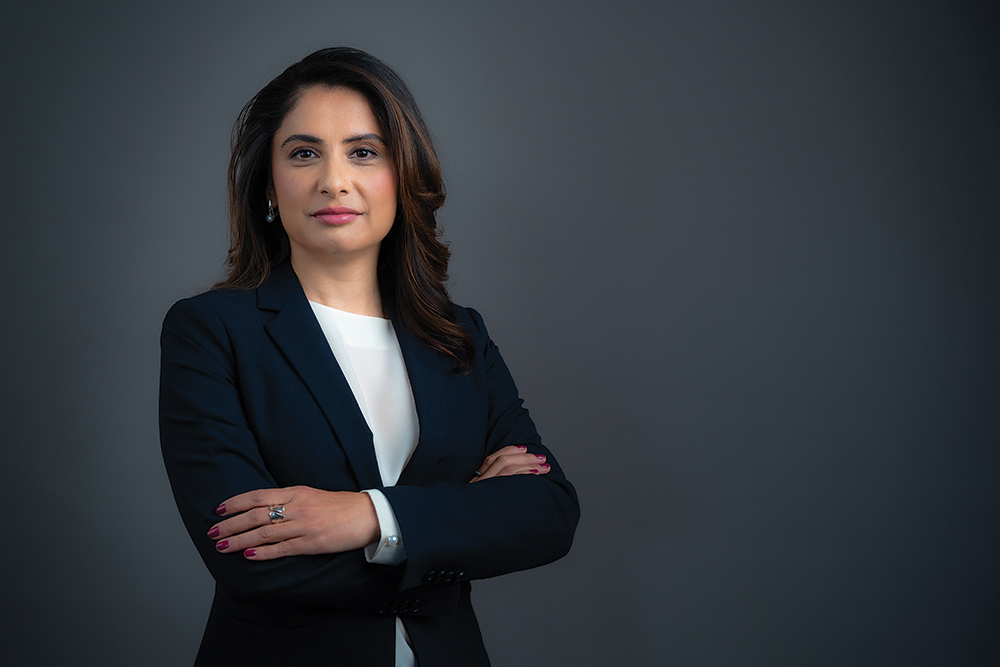
Though born and raised in Nepal, Aanchal Kunwar, Managing Director of Daraz Nepal, has spent most of her professional life in the United States of America. She went to the US for further studies in 2003. Along with an MBA, Kunwar also has a Bachelor’s degree in Mathematics and Economics.
Kunwar has over 15 years of experience working in the corporate sector in the United States. While pursuing her MBA, she worked for Carlson Wagonlit Travel (CWT) building her experience in consulting, programme management, corporate strategy, and product management. She then joined Amazon in 2016 and worked there for five years in various capacities including managing business, building abuse prevention programmes and products, and establishing Amazon retail in new markets like Sweden, Poland, Saudi Arabia and Egypt.
Kunwar is currently the Managing Director of Daraz Nepal, the country’s leading e-commerce platform. She is, in fact, the first woman MD among all Daraz ventures. In this edition of Business 360, we spoke to Kunwar to learn about what leadership means to her and other aspects of good leadership. Excerpts:
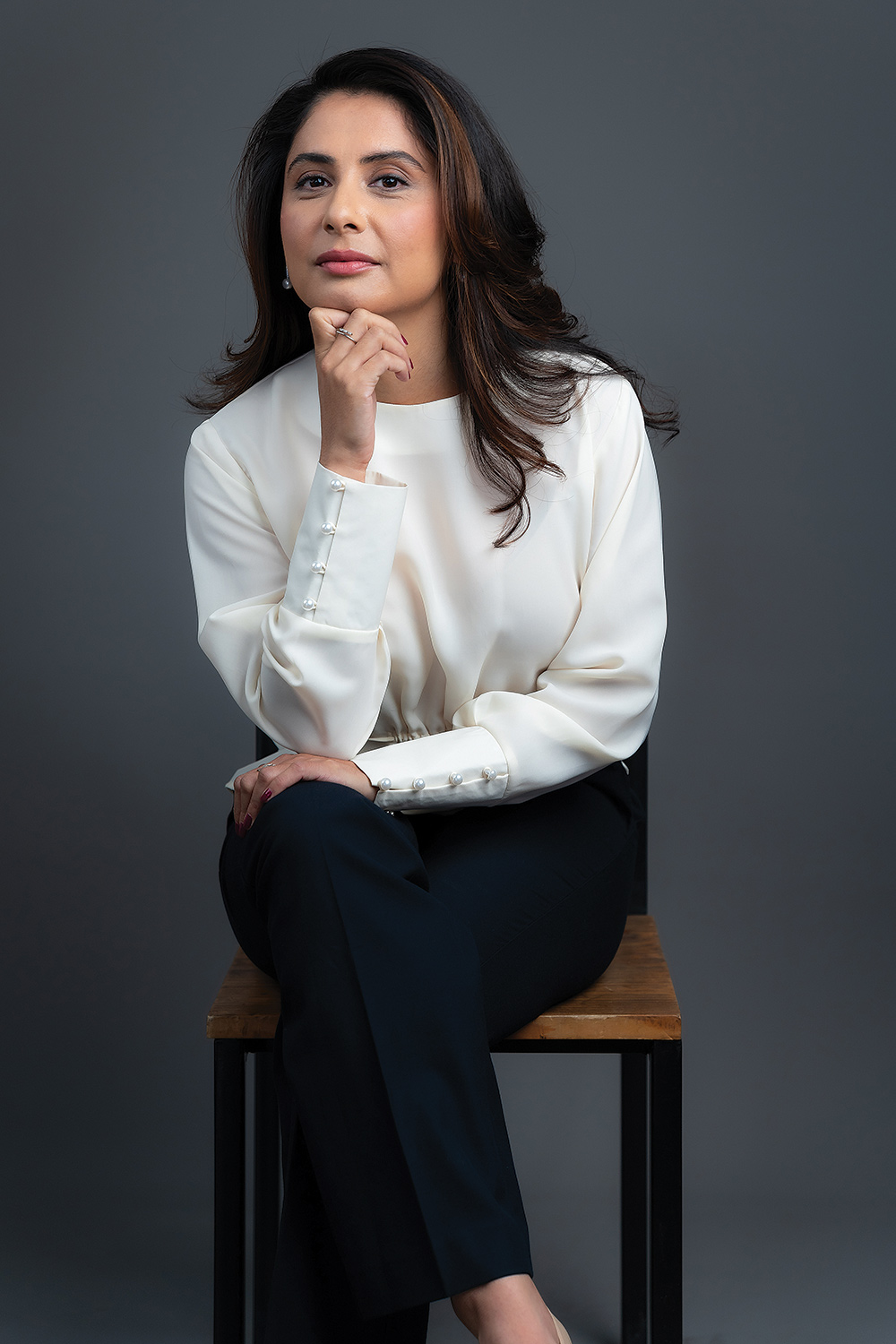
How do you define a leader?
Someone who can bring people together for a common goal or mission.Do you think leadership is an ‘in-born’ trait or can it be acquired?
Good leadership comes from a host of skills and qualities like problem-solving, communication, empathy, empowerment, and so on. I believe these skills can be acquired with experience. The key is more in following your passion and your sense of purpose in life that will drive you to put in the hard work needed to build these skills.Who comes to your mind as ‘an ideal leader’?
I don’t think I have one person per se who I think of as ‘an ideal leader’. There are a lot of people I find inspirational from all walks of life including Nelson Mandela, Barack Obama, Anuradha Koirala, Bill Gates, Deepika Padukone, and so on. I don’t know them personally but I think what they all have in common is the ability to think beyond themselves and make an impact in this world. Throughout my professional journey so far, I have been fortunate enough to work closely with leaders like Dr Muge Erdirik Dogan (current President at Amazon Fashion), Jack Hogin (Head of Amazon Retail Expansions), Nick Vournakis (EVP and CCO at CWT), David Moran (EVP at Legal Services Firm), and Mauricio Molina (Former CEO of a construction company in Peru). I have learned a lot from them and have picked up elements of their leadership styles that resonated the most with me.
Could you share with us an incident that tested your leadership ability?
During the earthquake in Nepal, I was doing a full-time job and also studying MBA part-time, which was already a hectic schedule and I had also just been appointed a board member of a Nepali association. It had just been a month; we had a full leadership team on board and then the earthquake happened. It was challenging, and it really tested my ability since I had to put my emotions aside and that is what makes it so hard. I was able to just focus on what I had control over. Being so far from Nepal, there was not a whole lot I could physically do. I focused all my energy on trying to think of ways in which we could raise funds for Nepal for rebuilding and so on. We organised scrappy fundraisers at farmer’s markets, musical concerts, events where people could really ask their individual companies to add to their donations that they could make to Nepal. All in all, I tried to implement so many initiatives that we were actually able to raise $275,000, and just being able to do that and give to Nepal felt great at the time.How important is it to have a good team to work with?
Having a good team to work with is very important. I also believe it is on you to make the environment such that the people feel recharged. I do believe that generally most human beings are good, with good intentions. It’s just a matter of taking the time to listen to their perspectives, understand their challenges, have honest conversations, and bridge the gap to align to the bigger common goals."Focusing on what you do have control over regardless of what happens in the outside world is a skill that is important."
When should a leader hand over the leadership position?
When they stop learning themselves and need a new challenge OR when you realise that the value of the company is different from your own OR when you realise that your team is consistently giving you negative feedback and there’s no improvement despite you changing things, sometimes it is just not a good match. What major changes has Covid 19 brought to the online business? I think the pandemic definitely put a lot of pressure on e-commerce companies across the globe, not just Daraz and Nepal. One thing that I say often is, we have had to run before walking. The country went on a lockdown and people had to stay home to be safe, and we had to deliver what we could at the time. That put a lot of pressure on us operating on a much larger scale than we were used to, that takes a lot of growing without actually being able to build processes that make the whole growth seem less. It’s definitely an impact. Specifically for Nepal, there were odd and even rules in place for vehicles so that definitely had an impact on whether we could meet customer expectations or not. Those kinds of restrictions definitely had an impact on the business as well. The digital marketplace in Nepal has definitely grown a lot. During the pandemic, even the older demographic was kind of compelled to use online shopping and now that they are aware about the convenience and selection that exists in online shopping, we have seen those demographics stick to online shopping. We have seen 100% growth year-over-year as well.What do you think has made Daraz the leading online business in Nepal?
Above all, I do believe in the mission of the company that is uplifting communities with the power of commerce. I think this is bigger than just Daraz. This is why I joined Daraz and I truly believe in our mission that guides us in everything we do. As we expand, there’s also pressure on the government to build proper infrastructure. We continue to focus on winning our customers, employees, and sellers/partners alike. We live and breathe our values that guide us to deliver on our promise. I think customer service is one of the biggest departments here and we consistently try to get information from each sale that we make such as complaints, product challenges, etc from both the seller’s and buyer’s perspective. I think if any company says we are perfect, I don’t think you will be able to continue to grow.What do you consider your most significant accomplishment as a leader?
I don’t believe in short-term wins. Years from now, I would like our employees, customers, and sellers and partners to look back at the time during my leadership and have fond memories of feeling heard, empowered, and supported in their individual goals.How can a leader prepare for the unknown?
In Vipassana, there is a term called ‘anichchha’, and the idea of impermanence – that nothing is permanent in this world. I think just being aware that anything could happen, like the pandemic, is critical as a leader. Once you are aware that anything can happen, you don’t lose your cool and can focus on problem solving. Focusing on what you do have control over regardless of what happens in the outside world is a skill that is important.What are the changes that you would like to bring or see in Daraz?
There are some things which we have already started implementing. One of the key things that the leadership team is focusing on right now is work-life balance. With the pandemic, we grew like crazy and everyone was working without actually being able to think or process what just happened. So, our goal now is to ensure that employees have a good work-life balance. We are implementing things like ‘No Meeting Mondays’; the work hours are 9-6 from Monday to Friday, so outside of these employees are not expected to check their email or anything. We are trying to promote more mentoring and career development discussions with a lot more geared one-on-ones that are more focused on career development like task completion and executions. A host of things where employees feel that they are not just a number is one aspect. The other is, as a startup, you are just doing a lot without thinking about high-level strategy, so this year and the next, we will be focusing more on how to build structures in place that are strategic such as monthly reporting, weekly reporting, and how they can be more structured and have clear strategic priorities.Do leaders also need to be mentored?
Without my mentors, I wouldn’t be where I am today. One of the things I find lacking in Nepal is the mentorship culture. I am doing my best to start building this culture at Daraz but I would greatly appreciate it if other leaders could double down on this untapped arena as well. READ ALSO:
Published Date: April 29, 2022, 12:00 am
Post Comment
E-Magazine
RELATED Leadership


